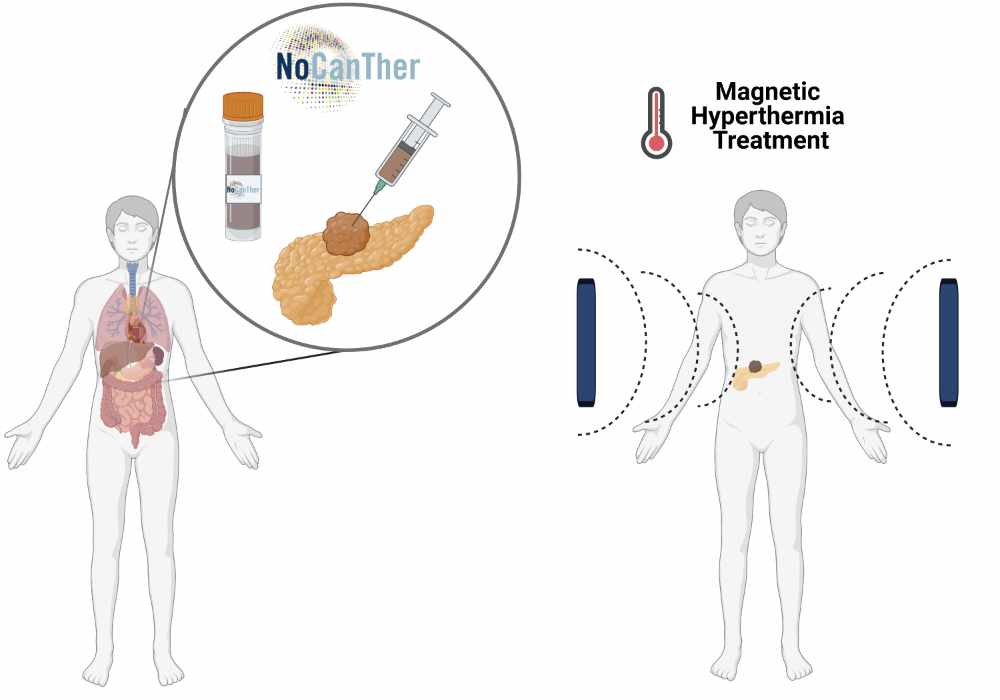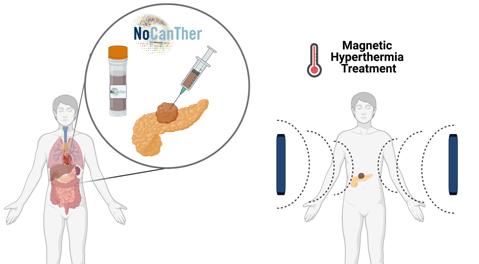BioKeralty news
Key role of BioKeralty in the NoCanTher project which tests the implementation of magnetic nanoparticles in the treatment of pancreatic cancer
The project aims to demonstrate the applicability of nanoparticles in the treatment of pancreatic cancer as an alternative therapy to chemotherapy

The scheme symbolizes hyperthermia, the technique analyzed by the NoCanther project to treat of pancreatic cancer.
February 25, 2021
In the absence of useful therapies for any type of patients, the NoCanTher project seeks to demonstrate the applicability of nanoparticles in the treatment of pancreatic cancer. Having BioKeralty as sponsor, the clinical study was the last stage of the European NoCanTher project, an initiative started in 2016 and funded by the European Union's Horizon 2020 research and innovation program. To this aim, the clinical study has been based on the results obtained in the preclinical stage where BioKeralty played a key role. BioKeralty's research was focused on the development of magnetic iron nanoparticles able to produce magnetic hyperthermia so that the heat created by these nanoparticles could be applied to sensitize cancer cells to the standard care, or even, destroy them.
Hyperthermia transforms electromagnetic energy into heat, which, combined with standard chemotherapy, destroys tumor cells while controlling the growth of the local tumor. Despite being a relatively new field of research, this approach may be a feasible option for cancer patients (especially those who do not respond to the standard treatment and in whom radiation therapy is particularly invasive).
Nanomedicine could become an alternative therapy to palliative chemotherapy to treat locally advanced pancreatic cancer cases
In this context, BioKeralty has tested this new approach in patients with locally advanced pancreatic cancer, analyzing the potential of magnetic nanoparticles to destroy tumor cells in those people with locally advanced pancreatic cancer. Consequently, nanomedicine could become an alternative therapy to palliative chemotherapy in the treatment of locally advanced, unresectable and non-metastasized pancreatic cancer.
Under the coordination of Instituto Madrileño de Estudios Avanzados (IMDEA) – Nanonciencia, currently BioKeralty continues working together with other ten national and international research centers in the implementation of nanomedicine in early clinical phases of multimodal cancer therapy.
